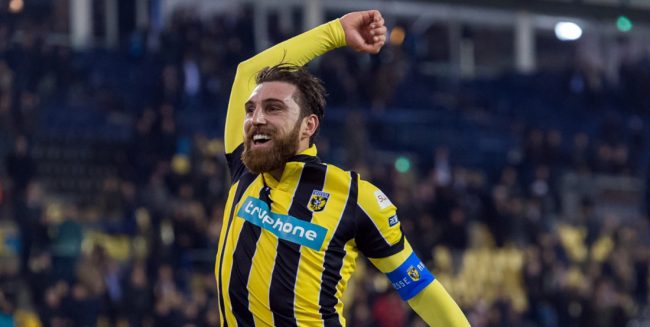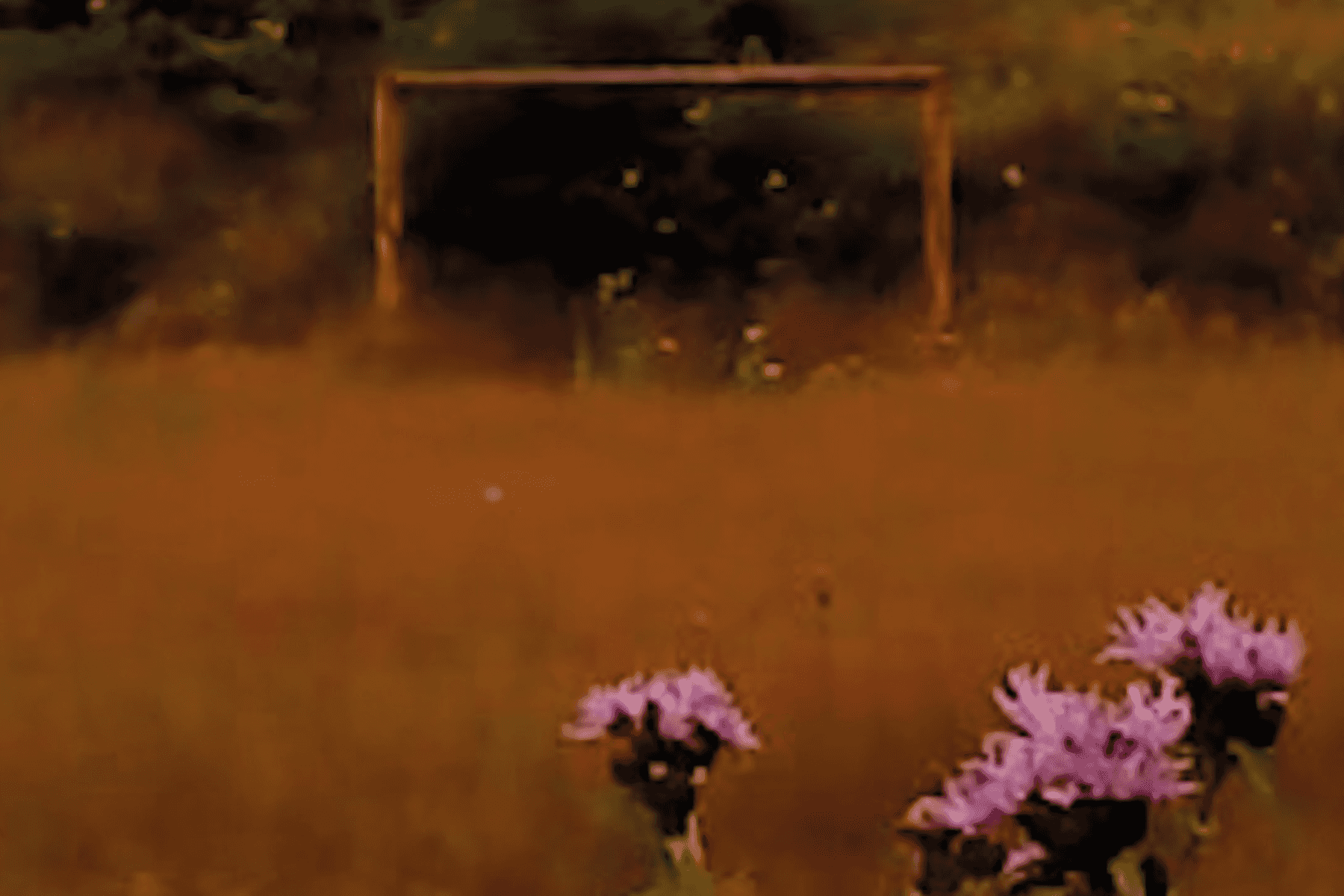

 The captain of Georgia’s National Football team, Guram Kashia, has met both backlash and support online and in the media after UEFA announced they were awarding him with their first #EqualGame award for his ‘courageous public stand for equality’. While some supported Kashia’s right to freedom of speech, or his support for queer rights, far-right groups vowed a rally outside Georgia’s match against Latvia in September.
The captain of Georgia’s National Football team, Guram Kashia, has met both backlash and support online and in the media after UEFA announced they were awarding him with their first #EqualGame award for his ‘courageous public stand for equality’. While some supported Kashia’s right to freedom of speech, or his support for queer rights, far-right groups vowed a rally outside Georgia’s match against Latvia in September.
Georgian police summoned Konstantine Morgoshia, one of the leaders of the ultra-conservative Georgian March, for questioning on Wednesday over possible threats made against Kashia on Facebook. ‘Come to Tbilisi on 9 September and the rest you’ll see’, Morgoshia wrote on his Facebook page earlier on Wednesday.
Kashia is expected to be in Tbilisi on 9 September for a match against Latvia.
Georgian March was one of the leading groups rallying last year against what they termed ‘gay propaganda’ from Kashia after he wore a rainbow armband in support of equality for queer people as captain of Dutch team SBV Vitesse. Backlash included demands Kashia be dropped from the national team, which he captains.
In December, Georgian news site Netgazeti named Kashia its ‘Person of the Year’, for his ‘contribution to advancing human rights in Georgia’.
The controversy reemerged in Georgia after on 22 August, UEFA announced they would present Kashia with their inaugural #EqualGame award for his ‘courageous public stand for equality’.
Football Federation president Levan Kobiashvili will accept the award on Kashia’s behalf on Thursday evening in Monaco.
Kashia, who is currently plays as a defender for the San Jose’s Earthquakes, publicly thanked UEFA for the award, adding that he believed ‘in equality for everyone, no matter what you believe in, who you love, or who you are […] I will always keep defending equality and equal rights for everyone, wherever I will play’.
For his courageous support of equality 🏳️🌈
Guram Kashia will today receive the first ever #EqualGame award 🏅🇬🇪 👏
This is his story…
📲 https://t.co/ABDcLO70Ly pic.twitter.com/ya98yTiVss
— UEFA (@UEFA) August 30, 2018
A post on UEFA’s Facebook page announcing Kashia’s award was met with homophobic abuse from many users.
On Tuesday, Kashia deactivated his verified Facebook page and made his Instagram account private, vowing later in an Instagram story to keep playing in the national team as long as he had at least ‘one supporter left in Georgia’. He said that he did not regret anything and thanked his supporters. Despite facing abuse online from many Georgians, others rushed to his defence, some using the hashtag #გურამშენთანვართ (‘we stand by you, Guram’), which was widely being used on Facebook and Instagram this week.
At San Jose vs FC Dallas match on Wednesday night in San Jose, California, a handful of local Georgians also expressed support for Kashia with the hashtag on their banners.
Ultra-conservative mobilisation
Davit Bakradze, presidential candidate for the opposition European Georgia Party, said on his Facebook page on Wednesday that ‘all Georgian citizens, irrespective of their minority group, is equal before the law’, and lambasted the authorities for ‘supporting and encouraging’ groups like Georgian March, a claim made by the party during their ‘No to Russian Fascism’ protest against a Georgian March-led anti-immigration rally in July 2017.
‘It is unacceptable and impermissible when openly pro-Russia and fascist groups publicly threaten a footballer for denouncing violence and supporting equality’, wrote Bakradze. He urged the authorities to ensure Kashia’s safety during Georgia’s September match against Latvia.
After leaving the police station, Morgoshia vowed on Facebook that ‘the whole world would know on 9 September that Georgia will never be a haven for faggots’, and urged others to gather before the match to prevent Kashia from entering the stadium. In a later update, Morgoshia claimed they ‘plan no confrontation’. In response, a group of Kashia’s supporters also planned their own gathering near the stadium.
Ultra-nationalist ideas have become commonplace in some informal football fan clubs in Georgia. Some of these groups, self-identifying as ‘football hooligans’, have openly supported Georgian March rallies.
‘A disgraceful hypocrisy’
A number of prominent public figures came to Kashia’s defence following the backlash, including teammates from the national side, Football Federation president Levan Kobiashvili, Georgian basketballer Anatoli Boisa, as well as popular TV anchors.
Politicians including Public Defender Nino Lomjaria, MP Dimitri Tskitishvili from the ruling Georgian Dream party, as well as the Union of Georgian Muslims also voiced support for Kashia.
While most of these messages of support were limited to condemning violence and highlighting Kashia’s right to express his positions, few mentioned queer rights.
Former Tbilisi mayor Gigi Ugulava, a member of European Georgia said on Facebook that ‘it is also about what Kashia said, based on values of freedom and equality. Appealing only to free speech in his support is […] a disgraceful hypocrisy’.
Queer rights activist Natia Gvianishvili, one of the founders of the Independent Group of Feminists, told OC Media she appreciated Kashia’s ‘principled position’ as well as the solidarity people had expressed towards him, but that such solidarity ‘doesn’t equal solidarity towards queer people’.
Gvianishvili described the controversy between ‘xenophobes’ and supporters of Kashia as a conflict among ethnic ‘Georgians passing as cisgender and heterosexual men’, shifting focus away ‘oppressed’ people, in this case, queer people.
‘We are used to being attacked, it has been normalised’, Natia said, adding that threats and murders of queer people, for example, or statistics on femicide in Georgia, do not trigger similar solidarity.
‘Obviously, we should support Kashia and anyone who becomes a target of far-right groups’, Gvianishvili added, ‘but we also have to think about how much space we give up when we assume solidarity expressed to others is ours too’.
[Read from Natia Gvianishvili on OC Media: Opinion | To answer Georgia’s homophobia we need a more united front against hate]
On 30 August, eight Georgian rights groups from the No To Phobia! platform insisted said that ‘aggression towards Guram Kashia and threats of violence targeting him […] expose the systemic character and gravity of oppression and violence LGBT people face’. They urged the government and the ruling party to voice their support for equality, adequately react to threats, and ensure public safety during the match planned for 9 September.
‘A captain’s duty’
Kashia’s position has been portrayed by some as an unavoidable part of his sports career after he wore the captain’s rainbow armband in October 2017. On Wednesday, Kashia’s predecessor as Georgia’s captain, Giorgi Nemsadze, told news site Tabula that Kashia may have been ‘pressured’ into wearing the armband in order to ‘avoid frustrating people’ in Europe.
In his initial comments in October, Kashia himself seemingly diminished his personal responsibility for wearing the armband, by referring to a Dutch-wide football campaign, where ‘every captain wore’ a rainbow armband, something that would ‘have never crossed’ his mind to do himself. However, Kashia’s positions later became more unambiguous in support of equality.
In 2009, as Vice-Captain of Georgia’s FC Dinamo, Kashia openly criticised FC WIT Georgia players for their allegedly aggressive behaviour against his Cameroonian teammates.
In contrast to Kashia’s position, a number of Georgian conservative Facebook pages have praised Josip Brekalo, a Croatian star from Germany’s FC Wolfsburg for his recent refusal to wear a rainbow armband, citing his religious beliefs as the reason.









